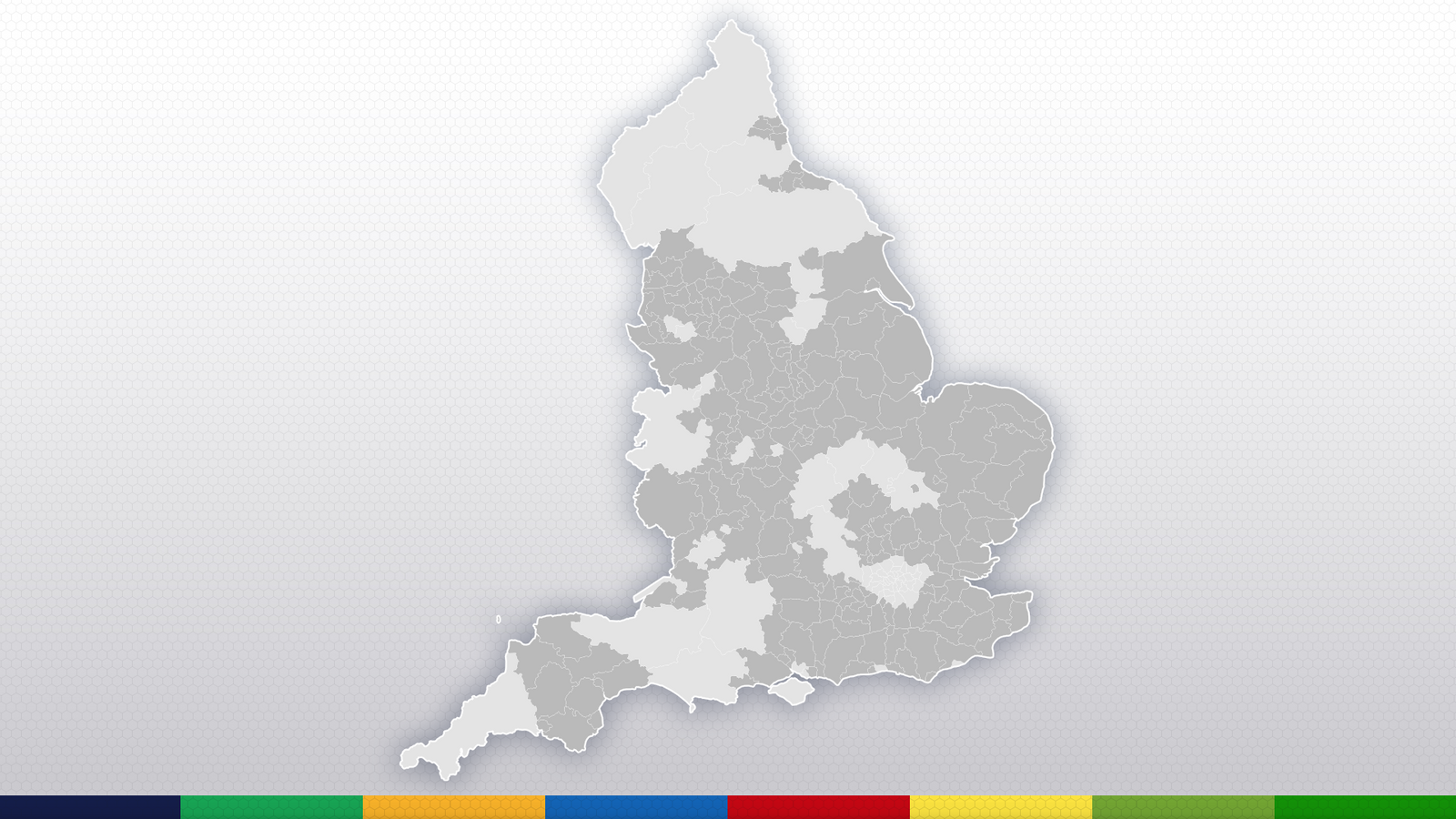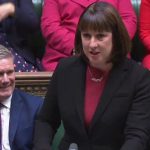Councils representing seven in 10 people in England have been up for grabs in what is the biggest electoral test for Rishi Sunak and Sir Keir Starmer before a general election.
With just under a third of the results in, we’re starting to see a picture forming as to how the country’s political preferences have changed.
Which councils have changed hands?
Labour’s biggest gain so far is Medway, in Kent. It’s the first time they have ever had a majority there.
And it’s the only council that was taken directly from the Conservatives, adding to two other councils wrested from No Overall Control.
They won Plymouth after the Conservatives were only able to defend one of their nine seats in this election, and took Stoke-on-Trent after making 10 gains, nine of which were from independents and other parties.
The Conservatives have lost five councils so far, three in the Midlands and two in the South East. All are now under no overall control, meaning no single party has a majority.
Most of the councils which counted their votes overnight are areas where just a third of seats were up for grabs in this election, which mean they are less susceptible to overall change in council control – parties have a baseline of seats to fall back on which aren’t up for election.
More of those which start counting on Friday are whole councils, so we could see more wholesale change as results start to come in again from about midday.
Many of these councils are in the South – a region where the Conservatives have seen some of their worst results so far.
Who’s having a good night?
The Conservatives have lost well over 100 seats already, more than a quarter of those they were defending overnight.
Labour have made almost 100 gains, with the remainder of the Conservative seat losses split between the Lib Dems and the Greens.
There’s still a long way to go, but on results so far it looks like the Conservatives are performing about as poorly as pre-election expectations got to. What remains to be seen is whether Labour are doing enough to look like a government-in-waiting.
Are Labour doing enough to be general election frontrunners?
Labour has maintained roughly a 20-point lead in the polls since Rishi Sunak became prime minister. However, they also tend to underperform their polling in local elections, by about six points on average.
We’re a little way off working out what the national vote share looks like based on these elections, but results so far show that Labour is in a much better place than it was in 2019, when the party suffered its worst general election defeat since 1935.
In those wards so far that also voted in 2019, Labour has won 39% of the vote. That’s up from just 30% in 2019 – an increase of 8.2 percentage points.
The Conservatives, by contrast, have seen their share of the vote in these wards fall from 30% to 28%.
A look at those 233 wards which had elections last year, however, suggests Labour could be at risk of losing momentum.
The party’s vote share in those wards has risen only slightly, from 39% last year to 40% in yesterday’s elections.
Fortunately for Labour, things have changed for the Conservatives in the past year. The governing party’s vote share in these wards has fallen to 27%, down from 32% in last year’s elections
Are Labour winning votes in the right areas?
In Portsmouth, independent candidates managed to increase their vote share by 1.5 percentage points, gaining four extra seats in the process.
Labour increased its vote share by more than twice as much (3.3 percentage points), but saw no gain in seats. That suggests the party’s additional votes were not won where they were needed most.
Which sorts of people are Labour appealing to?
So far, Labour has seen its vote increase most in areas that voted to leave the EU in 2016, typically with fewer university graduates and more working-class voters.
This represents a reversal of trends in recent elections – which had suggested the party was losing its grip on its traditional heartlands.
The Conservatives, by contrast, have seen big falls in their support in areas with younger, professional Remain-voting areas with higher numbers of graduates.
Confronted with an emboldened Labour party in the North, and increasingly confident Lib Dems in the South, the government faces a nasty pincer movement.






















